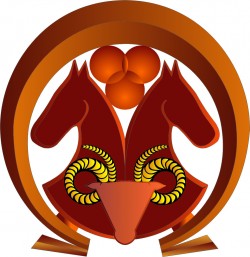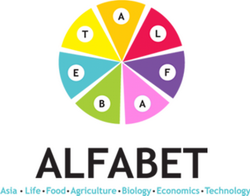Animal Sciences Students Sciencific Association
Our Student Scientific Association unites animal lovers with different interest that want to gain experience and knowledge and share it with others.
We strive to educate people, especially children, how to responsibly and rationally handle keeping and breeding domestic animals. At the same time we try to popularize polish fauna and raise awareness about worldwide animal related issues.
We want to achieve our goals by increasing our knowledge through carrying out reaserch and taking part in national and international conferences, giving lectures in schools and preschools, taking part in programs concerning animal conservation.
Zoological Section of the Animal Sciences Students Sciencific Association keeps exotic animals of different species, for educational purposes.
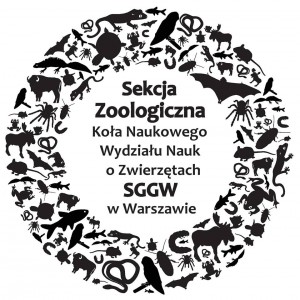
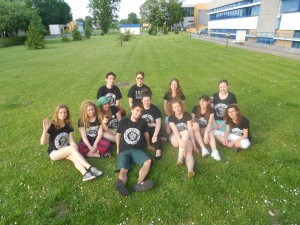
Faculty Student Association of Animals Nutrition
The student association gathers people interested in Biosciences like: Biology, Microbiology, Physiology and Anatomy of Animals. Our research combines these fields and uses it in nutrition of animals kept for farming purposes, pets, invertebrates and fodder production. There are several different groups of students working on their projects, which are carried out under the guidance of the employees of the Division of Animals Nutrition. We are always looking for new projects and they are gladly implemented. Our recent research concerned the effect of sedimentary calcium on morphological parameters of Japanese Quails. Also we did research about the influence of various factors: green tea and herb – Saposhnikovia divaricata on chicken embryos. Many results of our research are presented and appreciated on scientific events. If you want to be a member of our association, please do not hesitate to contact us:
mail: knzz@sggw.pl
students’ group coordinator: dr hab. inż. Tomasz Niemiec
Room 103
Division of Animal Nutrition,
Department of Animal Nutrition and Biotechnology,
Faculty of Animal Sciences,
Warsaw University of Life Sciences.
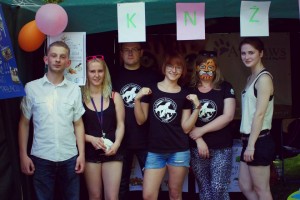
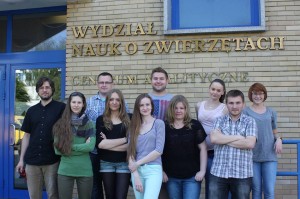
Agricultural Animal Breeders Students Club
Agricultural Animal Breeders Students Club is a student organization that consists of 4 sections: Cattle Breeders, Poultry Breeders, Swine Breeders and Sheep Breeders. Our members are breeders, producers but also students of WULS interested in animal breeding, animal production, welfare and nutrition. One of the main goal of the club is to encourage members of our association to participate in different experiments or researches conducted at Faculty of Animal Science and Experimental Agricultural Farm in Obory. We also participate in Polish and international scientific conferences (i.e. ELLS) and trainings. But another aim of the club is to learn working in group and sharing jobs. We also organize lessons for children in different age in their schools and at the faculty, and we take part in university events (i.e. WULS Days). The keeper of the club is dr Marcin Gołębiewski from Cattle Breeding Division.
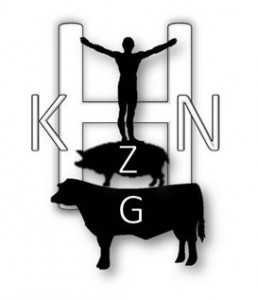
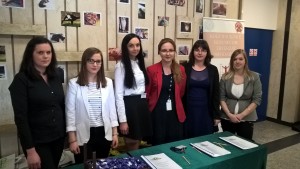
Interfaculty Student Association of Nanobiotechnology
The student association gathers people interested in Biosciences, Biotechnology and in particular the nanomaterials and nanoparticles. Our research connects these fields with microbiology, in vitro cell cultures and embriology. There are several different groups of students from various faculties working on their projects, which are carried out under the guidance of the employees of the Division of Nanobiotechnology.
The main research interests in the Division are for instance, carbon nanoparticles, their interactions with cells and biomolecules, embryo developement, the influence of nanoparticles on the embryogenesis and in vitro brain tumor treatment on the cell culture and in vivo on the chicken embryo model.
Through active participation in our group of intrests you can gain the needed experience in the laboratory practice and the access to the well-equipped laboratories. You can also get to know very well how to work with the cell cultures and on animal models. Moreover, we offer the work in a nice environment and help from other members and mentors, whenever you need.
If you want to be a member of our association, please do not hesitate to contact us:
e-mail: mknn@sggw.pl
students’ group coordinator: dr Sławomir Jaworski
Room 103
Division of Nanobiotechnology,
Department of Animal Nutrition and Biotechnology,
Faculty of Animal Sciences,
Warsaw University of Life Sciences.

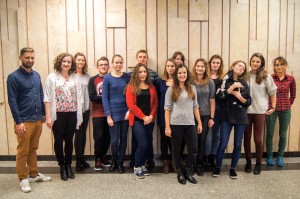
Interfaculty Student Association AVES
Interfaculty Student Association AVES consists mostly of students, people interested in birds (their breeding and training) who want to expand their knowledge in this field. Officially was founded in October 2013. The meetings are held regularly, and their subject matter combines elements of both practical and theoretical. Currently, in AVES operates Falconry section dealing with taloned birds. AVES gives its members the opportunity to take care of the animals, learn about them, conduct interesting experiments or doing research in said field.The Association is very actively conducting lectures, workshops and educational shows for children, youth and adults participating in various events and picnics. The keeper of AVES is dr Monika Łukasiewicz.
E -mail : aves@sggw.pl
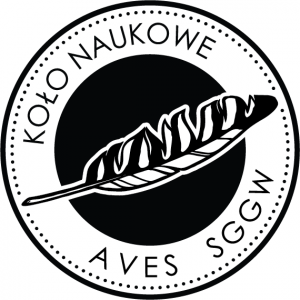
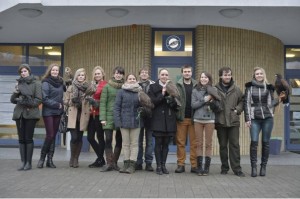
Scientific Association of Experimental and Laboratory Animals (KNZDiL)
According to the modern approach, the animals in the experiment are of overriding importance – are the most important and the behavior of their welfare depends on the result of our work. They are sentient beings. Guided by these principles, we gave to our Association the name “Scientific Association of Experimental and Laboratory Animals” to honor them for huge contribution, among others, in medical, biological and agricultural sciences.
How KNZDiL was established?
In WULS – SGGW work with laboratory animals are conducted since the 60’s of last century. One of the founders of this trend was a Prof. Tadeusz Sławiński, who created the selection lines of mice. In addition, in the Department of Genetics and Animal Breeding is one of the most active experimental herd of Japanese quail in the country. Scientific Association of Experimental and Laboratory Animal was established in response to the interest in the subject of animals used in experiments. Students belonging to our association cooperate with specialists in the field of science of experimental animals, with breeders, veterinarians, and other related institutions.
The keeper is dr Beata GrzegrzółkaWebsite : http://knzdil.sggw.pl/E-mail : knzdil@sggw.pl
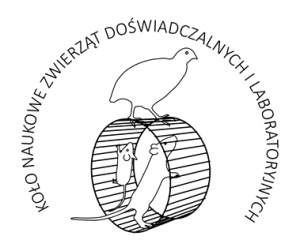
Faculty Students Council
The role of a students council is to consolidate all faculty students, to help them in their university life as well as to give opinion and advise the faculty authorities in decisions concerning all the students. The Council gives its members a unique look in to the work of the University, offers a chance to learn how to manage finances and people. Councilors are very active on every level of Faculty Organization, they help with the faculty promotion through a Facebook page and numerous events. The Councils intention is to promote independent ideas of its members and help them to learn how to move through their future jobs.
Room 1033
E-mail : samorzadwnzsggw@gmail.com
Departament of Animal Environment Biology
Faculty of Animal Sciences,
Warsaw University of Life Sciences.
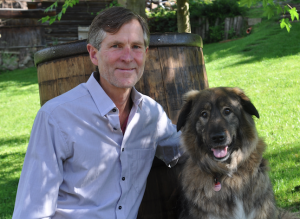 12.11.2016 dr Robert Falconer-Taylor gave a lecture “Emotional problems in pets” on Faculty of Animal Science. Dr Robert Falconer-Taylor is a partner of the Centre of Applied Pet Ethology (COAPE), the first organisation in the UK to develop government-regulated courses to degree level specifically in companion animal behaviour and training.
12.11.2016 dr Robert Falconer-Taylor gave a lecture “Emotional problems in pets” on Faculty of Animal Science. Dr Robert Falconer-Taylor is a partner of the Centre of Applied Pet Ethology (COAPE), the first organisation in the UK to develop government-regulated courses to degree level specifically in companion animal behaviour and training.









